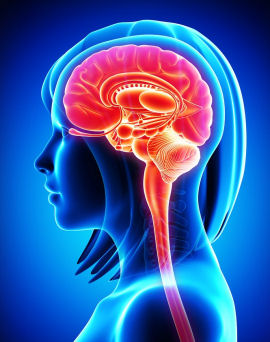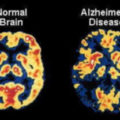
Reported in the journal Molecular Neurodegeneration, a study by Alzheimer’s researchers has found that a high protein diet, such as the Atkins diet, can lead to a smaller brain.
The researchers, from the US, Canada, and the UK, tested four different menus on mice that had been transgenically altered to provide a model of Alzheimer’s disease.
The alterations in the mice allowed them to express a mutant form of the human amyloid precursor protein (APP). APP’s role in the brain is not fully understood; however it is of great interest to Alzheimer’s disease researchers because the body uses it to generate the amyloid plaques typical of Alzheimer’s.
These mice were fed either a regular diet, a high fat/low carbohydrate diet, a high protein/low carb diet or a high carbohydrate/low fat option. The researchers then looked at the brain and body weight of the mice, as well as brain plaque build up and differences in the structure of several brain regions that are involved in the memory defect underlying Alzheimer’s disease.
Unexpectedly, the mice fed a high protein/low carbohydrate diet had brains 5 percent lighter that all the others, and regions of their hippocampus were less developed. The researchers have put forward a tentative theory that a high protein diet may leave neurons more vulnerable to Alzheimer’s plaque. Mice on a high fat diet had raised levels of plaque proteins, but this had no effect on plaque burden.
The only way to know for sure would require prospective randomized double blind clinical diet trials, Gandy believes. “This would be a challenging undertaking but potentially worthwhile. If there is a real chance that the ravages of Alzheimer’s disease might be slowed or avoided through healthy eating. Such trials will be required if scientists are ever to make specific recommendations about dietary risks for Alzheimer’s disease.”
Related:
Processed foods linked to Alzheimer’s and diabetes
Extreme Diet Nixes Alzheimer’s
When Thinking Can Be Toxic

















Comments are closed.